Main Takeaways:
- Both acknowledgement and acknowledgment are correct, depending on your geographic location.
- It’s usually spelled without the “e” in North America, where American English is the norm.
- In regions such as the UK that use British English, acknowledgement is spelled using the middle “e.”
- Acknowledgment has several different definitions that help shape usage.
- Acknowledgment letters are used in professional and legal settings to let the sender know their message has been received.
You’re happily typing away, and suddenly you freeze. Is it acknowledgement or acknowledgment? Is there an “e” or not?! Deep breaths, buddy. We’ve all been there, and we’ve finally put together a how-to guide that lays the groundwork for untold grammar success. Answers to all your acknowledgment questions are coming in 3, 2, 1…
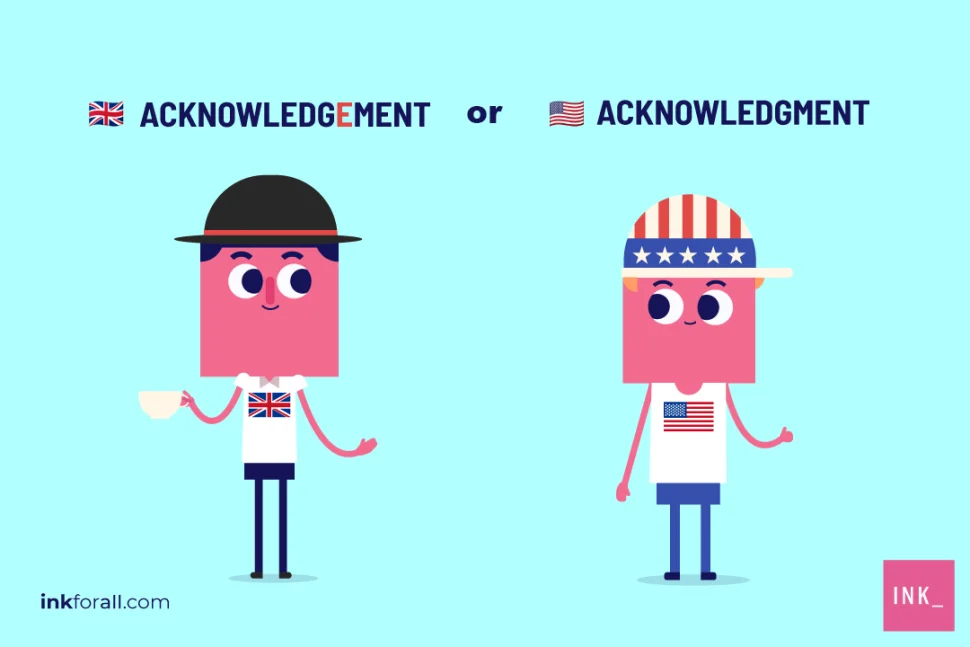

Is it Acknowledgement or Acknowledgment?
Choosing between acknowledgement or acknowledgment comes down to one little “e.” When you transition from “acknowledge” to acknowledgement, do you keep the “e” or chuck it? In the United States and Canada, the verbs that end in “e” lose that letter once the “-ment” is added. In other regions, such as the United Kingdom, the “e” stays.
So both acknowledgement and acknowledgment are technically correct. Which one you choose to use will depend on how closely you want to follow your geographical standard and, perhaps, who your audience is.
- In the UK, the “e” is here to stay. (“UK” and “stay” rhyme!)
- In Canada and the US, the extra “e” makes a mess. (“US” and “mess” rhyme!)
How to Spell Acknowledgment
So now that we know the difference between acknowledgement and acknowledgment, we know that spelling depends on where you live. It may also depend on where your audience lives.
If you’re in the US or Canada and want to conform to the norm, spell acknowledgment without the “e.” When you’re anywhere else in the world and want to conform to the local standard, leave the “e” alone.
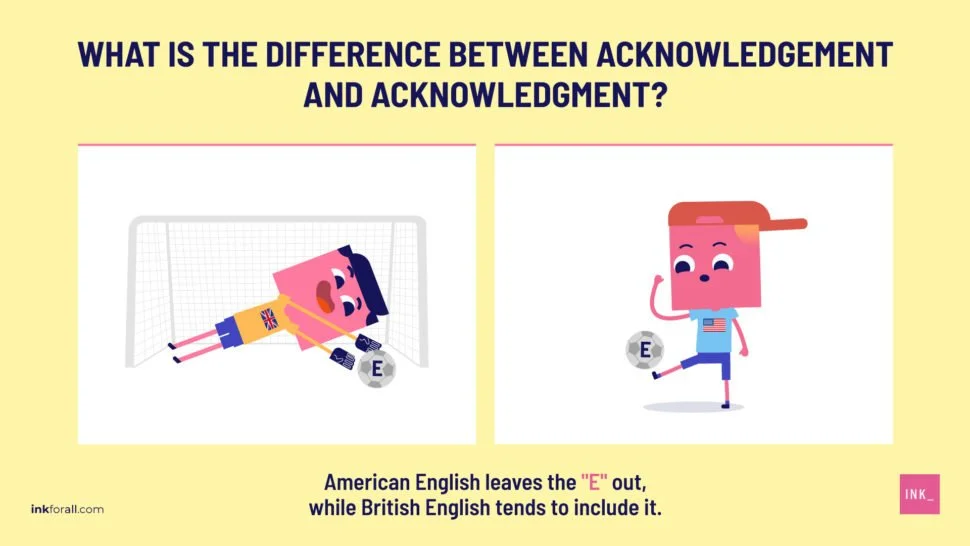

How do you use Acknowledgment in a Sentence?
Good question! You might say something like, “With hisacknowledgmentof his role in the oil spill, Mr. Sweeney accepted guilt and helped pave the way for industry-wide changes.” Or, you might say, “Bertha’s CEO handed out an award in acknowledgment of her incredible sales record.” Which usage you choose depends on what you’re trying to say. That, in turn, depends on which acknowledgmentdefinition you’re utilizing.
Let’s backtrack and look at what acknowledg(e)ment means. There are several possibilities:
Acceptance of something that exists or of someone else’s feelings or beliefs.
Demonstrating that you’ve seen or otherwise noticed the work or action of something else or the presence of an object.
Expressing thanks or recognizing the work and/or accomplishments of an individual.
Confirmation that you’ve received or seen something.
What is an Acknowledgment Letter?
A letter of acknowledgment falls under the last definition. It’s a way to let the recipient know that you’ve seen or at least received their paperwork or original note. It’s commonly used in professional settings, such as a landlord who received a potential resident’s application information. The same type of letter is also used in legal situations to provide written proof of both parties’ communication.
We received your application for placement in our Ph.D. program. Your information has been passed on to the candidate committee, and we’ll let you know in 4-6 weeks when a decision has been made.
Thank you for your interest,
Dean Whittaker
More Examples of Acknowledgment in a Sentence
Whew! Now that we have all those details out of the way, let’s take a look at more sample sentences.
Of course, this discussion goes beyond acknowledgement vs. acknowledgment. Acknowledge, acknowledged, and acknowledging are all useful words to help express everything from acceptance to recognition. Luckily, the “e” isn’t in dispute with those. Phew!
Quick Quiz About Acknowledgement and Acknowledgment
Acknowledgement or Acknowledgment Question #1
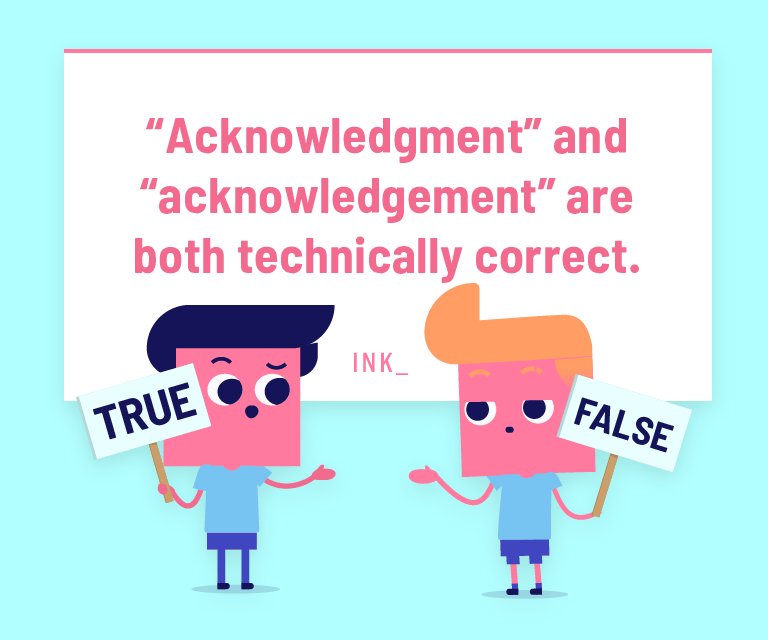

The answer is TRUE. Both “acknowledgement” and “acknowledgment” are correct, depending on your geographic location.
Acknowledgement vs. Acknowledgment Question #2
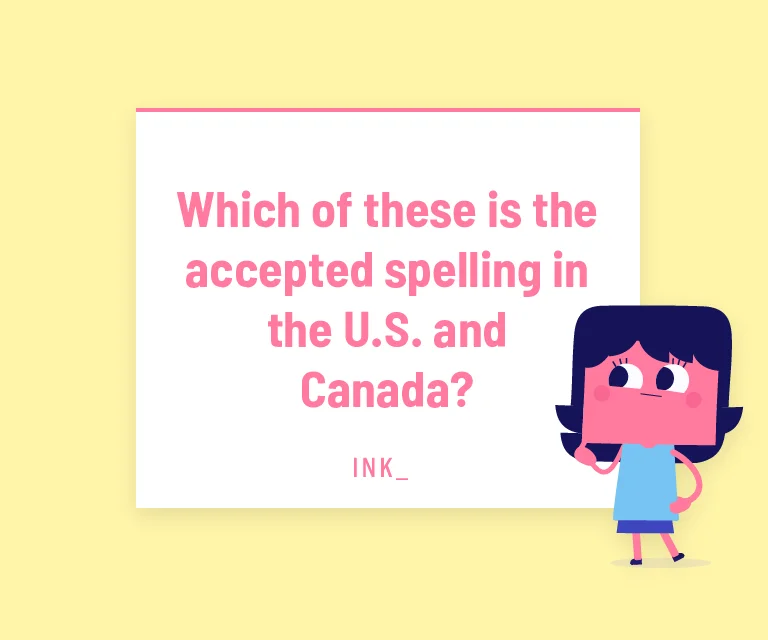

The answer is A. Use this mnemonic to remember: in Canada and the U.S., the extra “e” makes a mess. (“U.S.” and “mess” rhyme!)
Acknowledgement vs. Acknowledgment Question #3
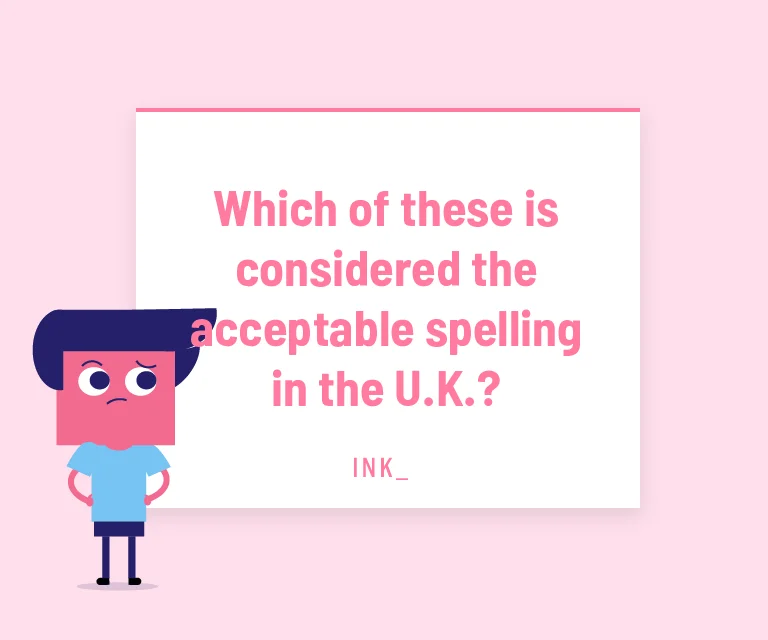

The answer is B. Use this mnemonic to remember: in the U.K., the “e” is here to stay. (“U.K.” and “stay” rhyme!)
Acknowledgment Question #4
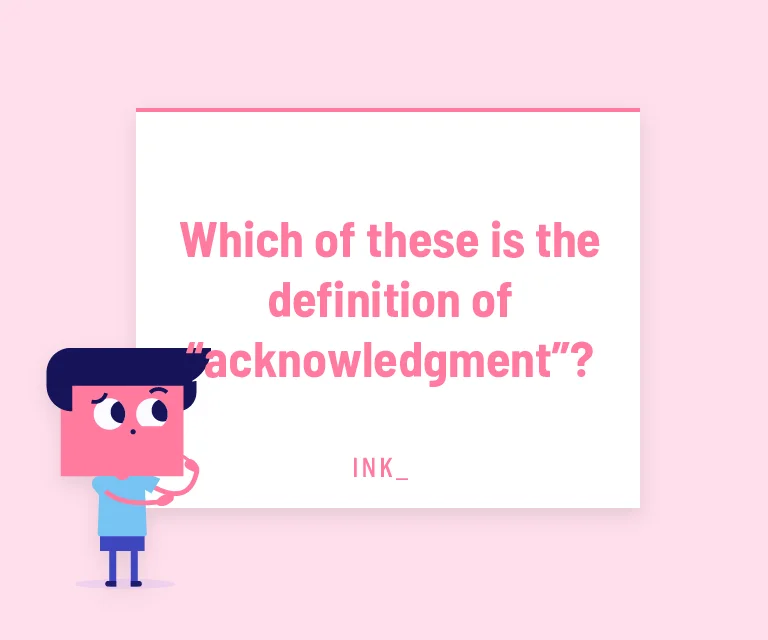

The answer is D. Usage of these definitions depends on what you’re trying to say.

Comments (0)
Least Recent